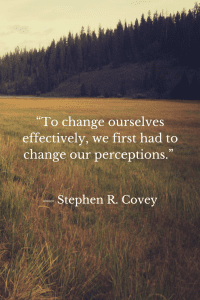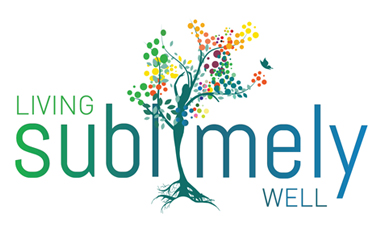Not only do we have to deal with the organizational demands of nursing (think staffing patterns, the schedule, and patient acuity) we have challenges like compassion fatigue and nurse burnout to cope with. These terms are thrown around interchangeably at times, so what is the difference between compassion fatigue and burnout?
Here’s a great (and quick) video to help us delineate between the two:
While Frank Ochberg explains the causes, symptoms and methods for coping with compassion fatigue, he speaks more broadly. To share resources that are specific to us as nurses, I also searched some of the literature on these two terms. I wanted to find examples of these obstacles specific to nursing- and better yet, see if there was anything that was being done to solve these challenges.
- This article, Countering Compassion Fatigue, highlights the distinguishing and risk factors for both burnout and compassion fatigue in nursing. The author does go on to describe interventions such as incorporating work life balance through self-care, educating oneself on these topics, and shares some workplace interventions such as art therapy, support groups, and counseling.
- Lombardo and Eyre’s article actually presents a case study of a nurse who did not seek help for recurring stress. Some of the interventions suggested in this publication include reviewing what’s already being offered in the workplace, seeking support of mentors, utilizing pastoral care, and setting up a relaxation space on the nursing unit.
 We certainly do have experts who are passionate about and dedicated to supporting stress management for nurses. So why do we still have compassion fatigue and nurse burnout? Besides all of the suggested resources above, I’d like to share a creative solution.
We certainly do have experts who are passionate about and dedicated to supporting stress management for nurses. So why do we still have compassion fatigue and nurse burnout? Besides all of the suggested resources above, I’d like to share a creative solution.
What about figuring out what the least stressful nursing jobs are? Now, you may read the previous statement and think: ‘Ha! The least stressful job in nursing!! Does that even exist?‘ I’d like to offer that it does- we just have to think creatively on this one.
[Tweet “Here Are Three Ways to Find the Least Stressful Job in Nursing”]
- Utilize Your Strengths. There are two great ways to go about figuring out your unique traits. The first is to look to your past. What did you enjoy doing as a child? Where did your parents have to drag you away from? Were you into jigsaw puzzles, playing outside, or banging on pots and pans? Looking to what you liked to do for fun as a kid can give you many clues into your professional strengths. The second way to figure this out is to look at what you’re currently doing. Sure, the job may not be 100% perfect- but what about your nursing role do you enjoy? When people come to you for help, what is that they’re asking for? What compliments do you receive? How do you describe yourself that sets you apart from the rest? Figure out what your strengths are and then bring these to the workplace. This will make your role a bit easier and less stressful each day.
 Practice Perspective. This is an interesting one; try not to reject this before reading it fully through. Think about what another type of nurse does. So for example, I was visiting a family member on a pediatric unit. As the nurse left the room, I thought to myself- ‘I could NEVER work with kids!‘ Then, a few months ago, I had a meeting on an oncology floor- the same thought crossed my mind. Even now, as I write this post, I think about it- ICU, ER, or a Surgical Floor. I could never do ANY of that! What types of nursing stress you out? Even just when you think about them… Could you find a professional role that does something different? Inspires you maybe… or even motivates and energizes you? And to really put this into perspective, think about the patient you are caring for. At least you are working and possibly in better health than them. Sometimes we add stress to our own lives with our thoughts. All I am suggesting here is that you realize what you think and feel about nursing and see where you may need to make a shift.
Practice Perspective. This is an interesting one; try not to reject this before reading it fully through. Think about what another type of nurse does. So for example, I was visiting a family member on a pediatric unit. As the nurse left the room, I thought to myself- ‘I could NEVER work with kids!‘ Then, a few months ago, I had a meeting on an oncology floor- the same thought crossed my mind. Even now, as I write this post, I think about it- ICU, ER, or a Surgical Floor. I could never do ANY of that! What types of nursing stress you out? Even just when you think about them… Could you find a professional role that does something different? Inspires you maybe… or even motivates and energizes you? And to really put this into perspective, think about the patient you are caring for. At least you are working and possibly in better health than them. Sometimes we add stress to our own lives with our thoughts. All I am suggesting here is that you realize what you think and feel about nursing and see where you may need to make a shift.- Follow Your Joy. My favorite tip! The very best way to find the least stressful job in nursing is to do what you love. It’s a combination of the first two tips and something more. Can you make a list of the things that you appreciate? You know, your ‘values’, so to speak. What’s important to you? What do you find fun? Is there a way to incorporate this into a professional role? Sure, if you’re just starting out you may have to find a job to pay the bills. Then as you get into the workplace, start to notice what you gravitate towards and ensure you are taking action steps in that direction each and every day.
I’d love to hear what I missed. What would you add to the list above? How do you think you might go about securing the least stressful job in nursing for you? Share a comment below and thanks for reading!
About the Author: As a speaker, workshop facilitator, and Reiki Master, Elizabeth partners with hospitals, organizations, associations, and nursing groups to help transform the field of nursing from the inside out. As the host of the Your Next Shift Workshop, Elizabeth guides nurses and nursing students to a change in perspective, helping them make the inner shift needed to better maneuver the sometimes challenging realities of being a caregiver.

Very informative article. I experienced burn out in my early years of nursing and lead me down the path to self-care. I have also experienced compassionate fatique when working full time as a hospice nurse for almost 10 years. At that point I was examing my life, and wanting a simpler one living in a wilderness setting, I moved to Alaska from California.This lead to creating a balanced life and finding the international nurse coach association, so I have a life in a small community with great connections, and a wider connection with the nurse coaches all over the states. I have used and continue to use most of the suggestins in the video and in your article which have been life savers for me. It is great seeing all this info in one place for those experiencing these issues. You are a blessing to the nurse community
WOW- What a move, Maureen. That certainly invests in your self-care. Thank you for sharing that experience with our readers. I am glad that you are seeing these articles as valuable. Thank you for that feedback.
Awesome post! Perspective and self-care are certainly key. I’m learning that. In fact, my introductory post on my blog is about exactly that. Thanks!
You are welcome, April! And congrats on your first blog post. Thanks for reading.
I love your posts! I especially loved reading the tips and as I was reading I have several instances where I felt the same way. I work next door to a children’s hospital and I always look at the building and say “thank god for pediatric nurses, I certainly could not do their job” I also loved your tip “find your joy”, nursing has so many options and its a wonderful thing to be able to blend passions outside of nursing with nursing.
Tiffany, thanks for the feedback. I am so glad that you enjoyed the post!
Elizabeth – I love tip #3! If you are doing what you love money and happiness will follow. There are so many opportunities available to nurses – just think big!
Right on, Bobbi! Thanks for coming by and taking time to share your enthusiasm on the blog.
Keeping active is an important part of keeping stress at bay. Taking the time to get away from work and have fun is also an important aspect of our work-life balance. Take the time to invest in things you like to do and keep up with friends and family who are important to you. Doing so helps improve your perspective and allows you to recharge.
Great additions, thanks Anne! I do agree that taking time to do what we enjoy is the best way to prevent stress and/or burnout.
Great Post Liz, I resonate with Tips 1 & 3, focus on your strengths not your weakness. Although, for me, I feel I need to periodically keep pushing myself out of my comfort zone… I tend to get bored easily, As far as stress management, using humor with coworkers and family helps; and finding a healthy outlet like lifting weights and cooking, Cooking and exercise really helps clear out my mind and decrease stress levels.
Thank you, Cesar. I completely understand your boredom. That happens to me as well. That’s why I continue to shake things up, learn new strategies, change and grow. Thanks for your comments. I appreciate it.